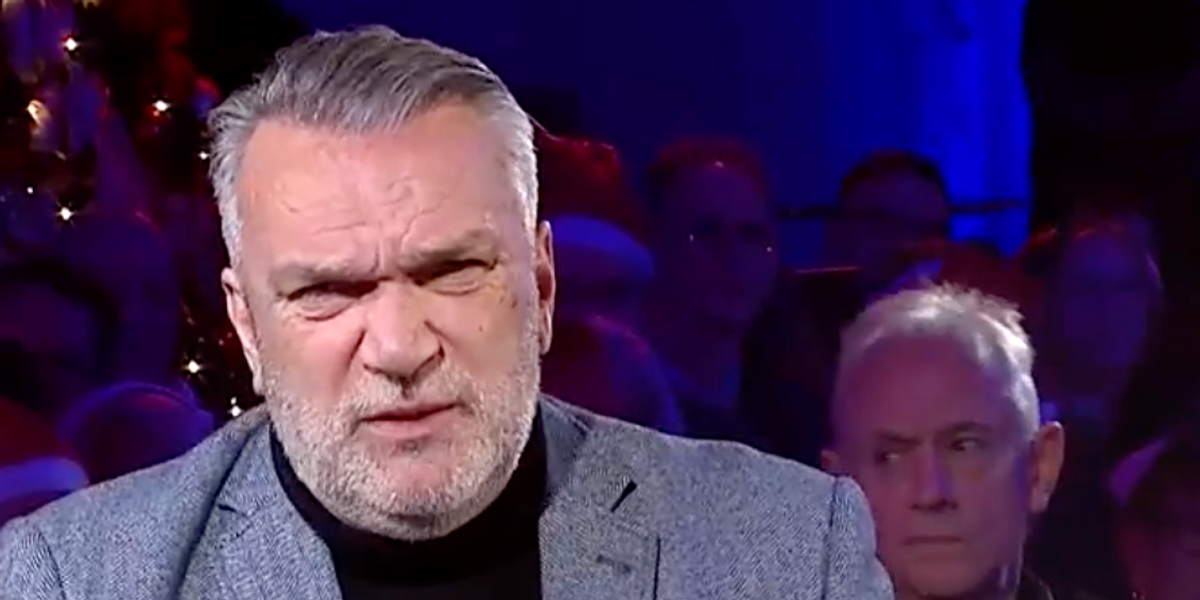For every book-to-TV deal that gets announced, only a few actually get made. Of those few, many adaptations are tonally wrong (The Three-Body Problem) or simply not as good as the book version (The Lady in the Lake). Or sometimes I can’t bear to watch an adaptation because I love the book too much, even if it has gotten uniformly great reviews (One Hundred Years of Solitude). But against all odds, great television that honors or complements the book on which it’s based still gets made. Here are some of the best of the year. * Presumed Innocent Ripley Rivals Say Nothing Interior Chinatown My Brilliant Friend
Scott Turow’s legal thriller (1987) first made it to the screen in 1990 as a vehicle for Harrison Ford and how damn likable he was, even while playing the role of Rusty Sabach, a lawyer and family man accused of the brutal murder of his co-worker-slash-lover. This year’s TV version, on the other hand, stars Jake Gyllenhaal in the role of the cheating husband who had a torrid affair but absolutely did not kill his paramour. Gyllenhaal can also be damn likable when he chooses to be, but he plays Rusty as a seething, anxious wreck of a man, liable to explode at any moment. This new adaptation takes some liberties with the whodunnit part of the plot, which makes for not entirely believable but still compelling TV. Turow’s followup, cleverly titled Presumed Guilty, comes out in the new year.
Patricia Highsmith’s 1955 thriller The Talented Mr. Ripley has inspired many tributes and copycats—most recently Emerald Fennell’s 2023 cakewalk Saltburn went ultra maximalist, all color and bombast. Ripley is a starker, more sinister version of Highsmith’s vision, shot in black and white to turn the story of obsession and identity theft into a proper noir. Andrew Scott is chilling as the titular con man, all the more so because his dreams and desires are clearly in technicolor. As a viewer, it’s difficult to take in Ripley’s Italian seaside setting without longing to see it in all of its sparkling glory, but there’s much pleasure and profundity to be found in not getting what we want.
This one I like to pitch as “if Dynasty had way more graphic sex scenes and was set in the Cotswolds” or “imagine a regency romance with a lot more shoulder pads and teased bangs.” The British series, based on the book of the same name by Jilly Cooper, is a very bingeable, trashy yet clever romp about the goings on at a TV franchise in Britain in the 1980s. It depicts all sorts of rich people behaving badly, but in a fun, escapist way, rather than a so-real-it hurts kind of way, which feels all too familiar these days. A high camp delight, Rivals is the perfect antidote for Seasonal Affective Disorder or whatever else ails you this winter.
Say Nothing was one of my ten favorite books of the 21st century because it was impeccably researched, but Patrick Radden Keefe was still able to take all of the facts and craft a wholly captivating narrative about The Troubles from them. The TV version loses some of that precision, and it suffers from lack of context, as TV critic Roxana Hadadi noted. However, if we lean into the fictional with this adaptation and allow ourselves to enjoy some of the more movie-script moments, what we get is an absolutely stunning portrayal of the IRA driver, bomber, and movie star wife, Dolours Price. Instead of being a complicated anti-hero, Dolours becomes the main character in the show, and as played by Lola Petticrew (young Dolours) and Maxine Peake (older Dolours) she is utterly entrancing.
Charles Yu’s inventive 2020 novel is a feat of perspective and timing, with the text on its pages switching back and forth between prose and TV script format in telling the story of Chinese restaurant worker Willis Wu. Willis is haunted by the disappearance of his older brother, whom he fantasizes about finding in an act of heroism worthy of a kung fu-laden Law & Order spinoff. Minus the clear textual delineation, the line between what happens on Willis’s TV and what happens in the real world of the show gets blurred in satisfying ways, and makes for a brilliant discourse on who gets to perform which roles in entertainment and in the wider world, and who is usually cast as nothing more than a background character. Jimmy O. Yang is excellent in his first starring role on TV, while Ronny Chieng is a pure comedic delight as Willis’s best friend.
Elena Ferrante’s Neapolitan novels are everywhere, but it feels like no one is watching the show, the one adaptation that most perfectly captures the spirit of its source material. The fourth season of the show encompasses all of the fourth book, the one I enjoyed reading the least because it was so relentlessly dark and tended to ramble. But the show nails it, cutting out some of the book’s nonessential moments to produce a tight, gut-wrenching yet joyful conclusion to the series. It also contains an all-time shot of the series’ pestilential lothario Nino Sarratore sitting next to his father, highlighting how the two are very much the same: vampires that suck the life out of the women in their lives. Start from the beginning if you haven’t yet watched the show. It’s worth going on the complete journey.

 By Literary Hub | Created at 2024-12-19 10:43:47 | Updated at 2024-12-25 13:02:10
6 days ago
By Literary Hub | Created at 2024-12-19 10:43:47 | Updated at 2024-12-25 13:02:10
6 days ago









